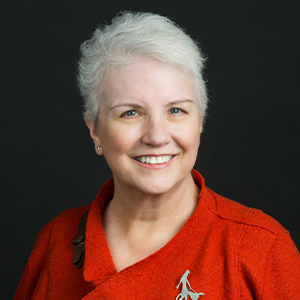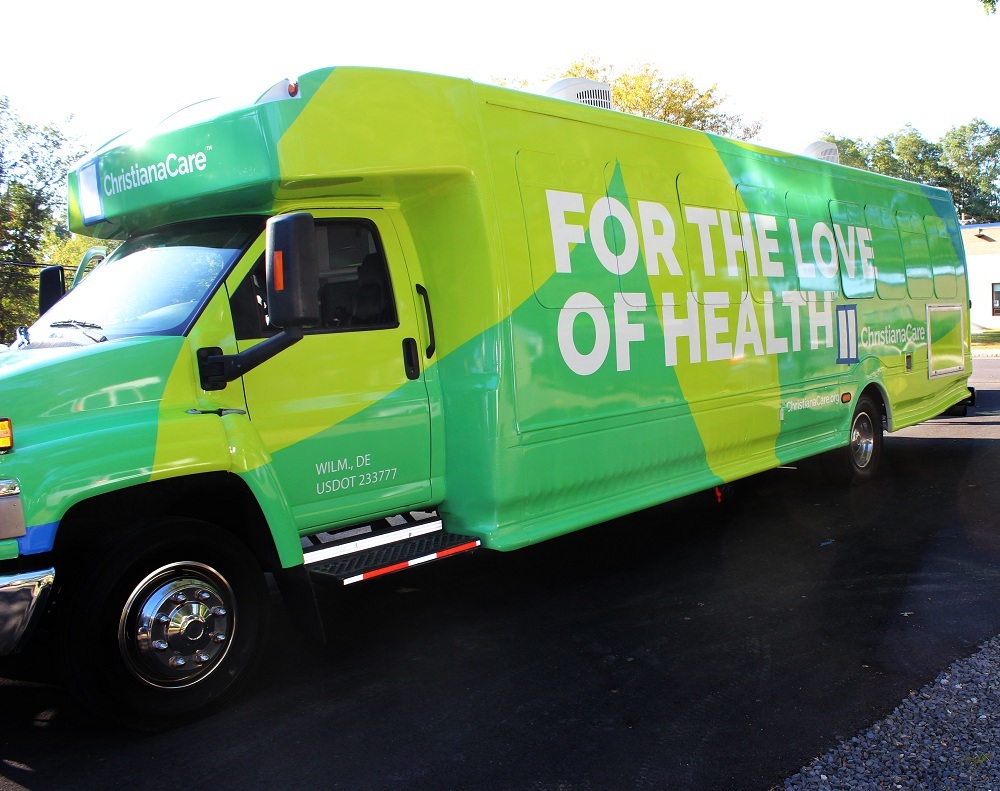ChristianaCare’s Rebrand: A Labor of Love
// By Marlene Kurban //
 Rebranding a large health system is a complex undertaking that is more than a marketing and design challenge; it requires a thoughtful, strategic approach to be successful. ChristianaCare, the largest health care provider in Delaware, unveiled its new brand identity in October 2019, after an 18-month planning process with its agency, Wax Custom Communications.
Rebranding a large health system is a complex undertaking that is more than a marketing and design challenge; it requires a thoughtful, strategic approach to be successful. ChristianaCare, the largest health care provider in Delaware, unveiled its new brand identity in October 2019, after an 18-month planning process with its agency, Wax Custom Communications.
The result? A transformation from top to bottom: a name change, a new logo, fresh imagery, and new messaging reflecting the organization’s commitment to serving the community.
Most important, the new brand helped ChristianaCare’s caregivers and community connect and understand the organization in a new way.

Drew Fennell, chief communications and experience officer, ChristianaCare
“We’ve served our community for more than 130 years,” says Drew Fennell, chief communications and experience officer, ChristianaCare. “We began as a hospital, then grew into a health system. But today ChristianaCare is an organization that is changing the dynamic of health care, innovating, leveraging technology, and engaging with communities to make an impact on health in transformative new ways. This change to our brand has helped to create a fresh understanding of who we are within the diverse communities we serve.”
ChristianaCare is one of the country’s most dynamic health care organizations, centered on improving health outcomes, making high-quality care more accessible, and lowering health care costs. The health system includes an extensive network of outpatient services, home health care, urgent care centers, three hospitals (1,299 beds), a Level I trauma center and a Level III neonatal intensive care unit, a comprehensive stroke center, and regional centers of excellence in heart and vascular care, cancer care, and women’s health.
It also includes the pioneering Gene Editing Institute and was rated by IDG Computerworld as one of the nation’s Best Places to Work in IT. ChristianaCare is a nonprofit teaching health system with more than 260 residents and fellows. It is continually ranked by U.S. News & World Report as a Best Hospital. With its unique CareVio data-powered care coordination service and a focus on transformation through population health and value-based care, ChristianaCare is shaping the future of health care.
The Planning Process

Bill Wax, president, Wax Custom Communications
ChristianaCare’s focus on population health and delivering care with innovative technologies inspired the rebranding initiative. The organization’s logo was outdated and a brand upgrade was sorely needed. Wax Custom Communications employed multichannel strategies and tactics to gather insights about Christiana’s brand equity, brand preference, and brand awareness.
“Our market research involved one-on-one interviews with leaders and the board of directors, focus groups with physicians, nurses, operations staff, volunteers, and patient advisors,” states Bill Wax, president, Wax Custom Communications. “We also conducted phone and online surveys and ‘man on the street’ interviews with community members and employees. We reached approximately 1,450 people across 153 ZIP codes in four states.”
Key findings included:
- The ChristianaCare Health System name has brand equity, especially in Delaware.
- Delawareans know ChristianaCare is “Big,” but they don’t know the full extent of its services.
- All groups agree that ChristianaCare does not advertise enough (as much as other health care systems).
- When asked what three words come to mind about ChristianaCare, there was no consistency in the response.
- The logo is tired and old; symbol needs to change.
“This extensive research made it abundantly clear what we needed to do next,” says Karen Y. Browne, vice president of marketing and communications at ChristianaCare. “Due to the depth and breadth of the research, we were able to develop a stronger brand identity, which helps us stand out in the marketplace, recruit top-notch clinicians, attract new patients, and amplify all the work we do to impact people’s physical and mental health.”
Recommendations and Buy-in

Karen Y. Browne, vice president of marketing and communications, ChristianaCare
Months of research and creative brainstorming culminated in recommendations presented by Wax to ChristianaCare.
Wax explains, “The previous avocado green color by which the organization was known was replaced with a vibrant primary palette of rich blue and verdant green representing hope and energy, and the former sideways hug logo was replaced with a modern design based on the Delaware state flower, the peach blossom. This symbolizes health, longevity, and growth.”
The name was streamlined into one word, ChristianaCare, to more accurately reflect the organization’s mission of caring for the community and a new tagline was born: “For the Love of Health.”
“For the Love of Health. It’s what we do,” says Brown. “It’s why our doctors and nurses are being recognized across the region for providing outstanding care. It’s why we’re consistently ranked in the top 1 percent of all health care systems in the nation. And why we are among the best health systems in the world. Our new look is a symbol of our promise to our community. It reaffirms ChristianaCare’s commitment to health for the next 100 years.”
Introducing ChristianaCare to the Community
The next steps involved rolling out the new brand to the community. A multichannel teaser campaign created by Wax and ChristianaCare began in August with unbranded billboards and ads with questions such as “Why run that 5K?” and “Why get a flu shot?” Those questions were answered on the day of the official reveal, October 3, 2019: FOR THE LOVE OF HEALTH, artistically placed among the brand-new name and logo.

A multichannel teaser campaign began in August with unbranded billboards and ads, with questions like: “Why run that 5K?” The questions were answered on the day of the official reveal. Why? FOR THE LOVE OF HEALTH.
“On the day of the unveiling, ChristianaCare held multiple employee events that featured the arrival of a new ‘For the Love of Health’ brand bus. Employees had the chance to step inside and see the new immersive brand experience,” says Browne. “There was food, fun, and plenty of prizes and giveaways with the new brand.”
Over the following weeks, ChristianaCare opened a Spirit Store for other branded items, took the brand bus out to various community events, and began to change the look and feel of the websites, signage, uniforms, and business cards.

Bus Wrap-interior; caption: Employees had the chance to step inside the “For the Love of Health” brand bus and see the new immersive brand experience.
Since the launch, the brand bus has toured the community, engaging people with health information and healthy snacks. More recently, the bus has served as the epitome of serving the community as ChristianaCare has been conducting weekly COVID-19 assessments and testing for the public at various sites throughout Delaware.
An Inspiring Transformation
The challenge of increased consumer choice leads many health care organizations to refocus their business strategies and retool their brand. But organizations must also be cognizant of the time, money, and resources required when the decision is made to rebrand.
“The rebranding process is not something to enter into lightly, and it’s important to get it right,” says Fennell. “When all of the pieces come together, as they did in ChristianaCare’s rebranding, it’s a transformation that represents our promise to support those we serve throughout their lifelong health journey and reflection of our values — love and excellence.
“We believe that health care is a relationship between human beings, and in the best health care, that relationship is a partnership in which each person feels loved. When we lead with love, excellence follows, and we create the best potential to make an impact on health.”
Marlene Kurban is a business development consultant and freelance writer with more than 20 years of experience in the behavioral health care field.

